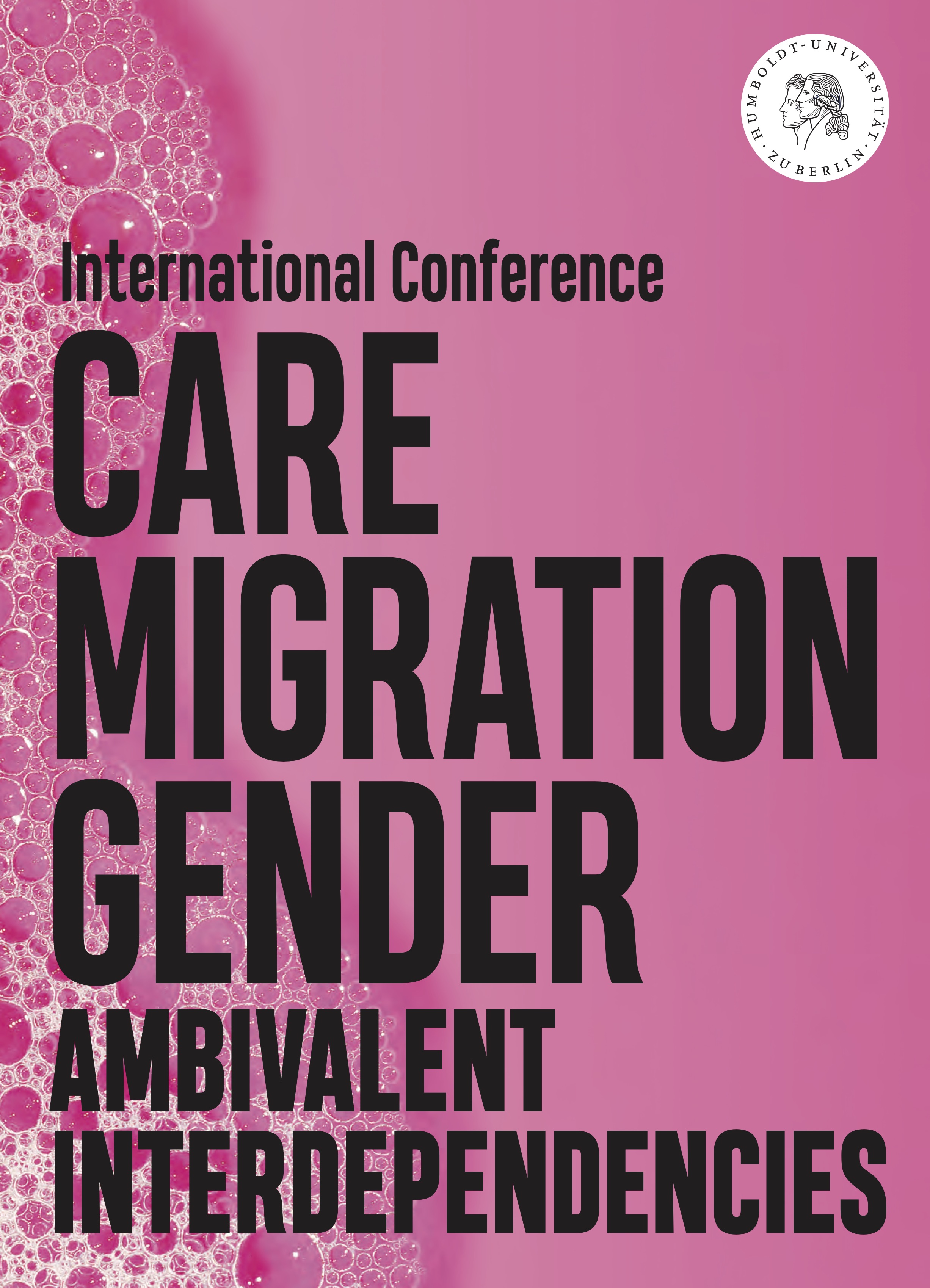Biographical Agency of Male Au Pair Migration to Germany
DOI:
https://doi.org/10.17169/ogj.2020.115Keywords:
Biography, Care Work, Masculinity, Migration, Performativity, Au pairAbstract
Au pair mobility has long been dominated by females. In recent years, young men have also begun to travel abroad as au pairs, but little is known about their motives and perspectives on this gender atypical migration pathway and occupation. Based on Schütze’s concept of biographical patterns, dynamics, and change processes this article shows how young men use the au pair stay as a biographical moratorium of emerging adulthood. By transcending expectation patterns of masculinity in their home and receiving context, they initiate a biographical turning process which allows them to escape a life course trajectory in their home country that is determined by high unemployment and access highly skilled jobs in Germany. In the au pair families, they are expected to perform “caring masculinity” for male children to substitute the missing participation of fathers. Hence, the commodification of care work does not only imply the outsourcing of practical tasks to an employee but also relational work of doing gender within families.
References
Anderson, Bridget (2007): A Very Private Business. Exploring the Demand of Migrant Domestic Workers. In: European Journal of Women’s Studies 14 (3), 247–264. doi: 10.1177/1350506807079013.
Ashwin, Sarah (2002): ‘A Woman Is Everything’: The Reproduction of Soviet Ideals of Womanhood in Post-Communist Russia. In Rainnie, Al/Smith, Adrian/ Swain, Adam (Ed.): Work, Employment, and Transition: Restructuring Livelihoods in Post-communism, London: Routledge, 117–133.
Aunkofer, Stefani/Meuser, Michael/Neumann, Benjamin (2018): Couples and Companies: Negotiating Fathers’ Participation in Parental Leave. In: Revista Espanola de Sociologia 27 (3), 65–81. doi: 10.22325/fes/res.2018.34.
Arnett, Jeffrey (2000): Emerging Adulthood: A Theory of Development from the Late Teens through the Twenties. In: American Psychologist 55 (5), 469–480. doi: 10.1037/0003-066X.55.5.469.
Backewell, Oliver (2010): Some Reflections on Structure and Agency in Migration Theory. In: Journal of Ethnic and Migration Studies 36 (10), 1689–1708. doi:10.1080/1369183X.2010.489382.
Bundesagentur für Arbeit (2013): Au-pair bei deutschen Familien. https://www.guetegemeinschaft-aupair.de/files/bilder/downloads/Merkblatt%20Aupair%20bei%20deutschen%20Gastfamilien.pdf (05.08.2020).
Sekeráková Búriková, Zuzana/Miller, Daniel (2010): Au Pair. Polity Press, Cambridge.
Butler, Judith (1988): Performative Acts and Gender Constitution. An Essay in Phenomenology and Feminist Theory. In: Theatre Journal 40 (4), 519–531. doi: 10.2307/3207893.
Connell, Raewyn (1995): Masculinities. Cambridge, UK: Polity Press/Berkeley, CA: University of California Press.
Cox, Rosy; Busch, Nicky (2016): ‘This is the life I want’: Au pairs’ perceptions of life in the global city’. In: Nordic Journal of Migration Research 6 (4), 234–242. doi: 10.1515/njmr-2016-0029.
Elliott, Karla (2016): Caring Masculinities: Theorizing an Emerging Concept. In: Men and Masculinities 19 (3), 240–259. doi: 10.1177/1097184X15576203.
Farrokhzad, Schahrzad (2007): Ich versuche immer, das Beste daraus zu machen. Akademikerinnen mit Migrationshintergrund: Gesellschaftliche Rahmenbedingungen und biographische Erfahrungen. Berlin: Regener.
Gallo, Ester (2018): Religion, Masculinity, and Transnational Mobility. In Brown, Bernado/Yeoh, Brenda (Ed.): Asian Migrants and Religious Experience: From Missionary Journeys to Labor Mobility. Amsterdam: Amsterdam University Press, 177–199.
Gallo, Ester/Scrinzi, Francesca (2016): Outsourcing Elderly Care to Migrant Workers. The Impact of Gender and Class on the Experience of Male Employers. In: Sociology 50 (2), 366–382. doi: 10.1177/0038038515573688.
Geissler, Birgit/Oechsle, Mechtild (1996): Lebensplanung junger Frauen. Zur widersprüchlichen Modernisierung weiblicher Lebensläufe. Weinheim: Deutscher Studienverlag.
Geissler, Birgit/Oechsle, Mechtild (2001): Zeitordnungen des Erwerbssystems und biographische Bindungen an Andere. http:// www.uni-bielefeld.de/soz/personen/geissler/pdf/zeitordnungen.pdf (23.08.2011).
Graf, Mathias/Knotte, Gisela/Walter, Heinz (2000): Vom Jugend- zum jungen Erwachsenenalter. Eltern-Kind-Beziehungen werden ausgeglichener, die emotionale Randposition des Vaters verschärft sich. In: System Familie 13, 178–182.
Gregory, Abigail/Miller, Susan (2011): What is ‘New’ about Fatherhood?: The Social Construction of Fatherhood in France and the UK. In: Men and Masculinities 14 (5), 588–606. doi: 10.1177/1097184X11412940.
Gültekin, Nevâl/Inowlocki, Lena/Lutz, Helma (2003): Quest and Query: Interpreting a Biographical Interview with a Turkish Woman Laborer in Germany. In: Forum Qualitative Sozialforschung, 4 (3) doi: 10.17169/fqs-4.3.668.
Günther, Marga (2009): Adoleszenz und Migration. Adoleszenzverläufe weiblicher und männlicher Bildungsmigranten aus Westafrika. Wiesbaden: VS Verlag für Sozialwissenschaften.
Hunter, Sarah/Riggs, Damien/Augoustinos, Martha (2017): Hegemonic Masculinity vs. a Caring Masculinity: Implications for Understanding Primary Caregiving Fathers. In: Social and Personality Psychology Compass 11 (3), 1–9. doi: 10.1111/spc3.12307.
Johansson, Thomas; Klinth, Roger (2008): Caring Fathers: The Ideology of Gender Equality and Masculine Positions. In: Men and Masculinities 11, 42–62.
Kazmierska, Kaja (2003): Migration Experiences and Changes of Identity. The Analysis of a Narrative. In: Forum Qualitative Sozialforschung, 4 (3). doi: 10.17169/fqs-4.3.669.
Kilkey, Majella/Perrons, Diane/Plomien, Ania/Hondagneu-Sotelo, Pierette/Ramirez, Hernan (2013): Gender, Migration and Domestic Work. Masculinities, Male Labour and Fathering in the UK and USA. Basingtole: Plagrave MacMilan.
King, Vera/Koller, Hans-Christoph (2009): Adoleszenz als Möglichkeitsraum für Bildungsprozesse unter Migrationsbedingungen. Eine Einführung. In: King, Vera/ Koller, Hans-Christoph (Ed.).: Adoleszenz – Migration – Bildung [2nd Edition]. Wiesbaden: VS Verlag für Sozialwissenschaften, 9–26. doi: 10.1007/978-3-531-90332-3_1.
Laufenberg, Mike (2017): Fürsorge, Männlichkeit und Postwachstum. Ein Kommentar. In: Feministische Studien 2 (17), 359–364. doi: 10.1515/fs-2017-0038.
Näre, Lena (2010): Sri Lankan Men Working as Cleaners and Carers: Negotiating Masculinity in Naples. In: Men and Masculinities 13 (1), 65–86. doi:10.1177/1097184X10382881.
Rands, Tania (2002): Gender and Family Roles in Post-Soviet Russia. http://www.cas.miamioh.edu/havighurstcenter/papers/rands-lyon.pdf (23.11.2020).
Rerrich, Maria (2006): Die ganze Welt zu Hause. Cosmobile Putzfrauen in privaten Haushalten. Hamburg: Hamburger Edition.
Riemann, Gerhard/Schütze, Fritz (1991): ‘Trajectory’ as a Basic Theoretical Concept for Analyzing Suffering and Disorderly Social Processes. In: Maines, David (Ed.): Social Organization and Social Process: Essays in Honor of Anselm Strauss. New York: de Gruyter, 333–357.
Robinson, Bryan/Skeen, Patsy/Flake-Hobson, Carol (1980): Sex-Stereotyped Attitudes of Male and Female Child Care Workers: Support for Androgynous Child Care. In: Child Care Quarterly 9, 233–42. doi: 10.1007/BF01555182.
Rohde, Caterina (2011): Biographical Constructions of Generationality and Inter-Generationality in Processes of Au-pair Migration. In: Prochnow, Jeannette/ Rohde, Caterina (Ed.): Generations of Change. InterDisciplines Journal of History and Sociology, 2 (2), 105–138.
Rohde, Caterina (2014): Gibt es Au-pair Jungen? Jungen Männer in der Kinderbetreuungsarbeit der Au-pair Verhältnisse. In: Rose, Lotte; May, Michael (Ed.): Mehr Männer in die Soziale Arbeit?! Opladen: Budrich, 59–71. doi: 10.2307/j.ctvddzq0x.7.
Rohde-Abuba, Caterina (2015): ‘A Real Woman Has to Do It All – With the Kids and in the Office’: Doing Femininity in the Transcultural Context of Russian-German Migration. In: Gender, Place & Culture 23 (6), doi: 10.1080/0966369X.2015.1058763.
Rohde-Abuba, Caterina 2016: ‘The Good Girl from Russia Can do It All’: Au Pairs’ Perceptions of Exploitation in Intersections of Gender and Nationality and their Strategies of Resistance. In: Nordic Journal of Migration Research 6 (4). doi: 10.1515/njmr-2016-0033.
Rosenthal, Gabriele (2008): Interpretative Sozialforschung. Eine Einführung [2nd Edition]. Weinheim: Beltz Juventa.
Schengenvisainfo (2019): Ausländische Studenten benötigen ab dem 1. September rund 10.236 €, um ein Studentenvisum für Deutschland zu beantragen. https://www.schengenvisainfo.com/de/nachrichten/auslandische-studenten-benotigen-ab-dem-1-september-rund-10-236-e-um-ein-studentenvisum-fur-deutschland-zu-beantragen/ (05.08.2020).
Schütze, Fritz (1981): Prozeßstrukturen des Lebensablaufs. In: Matthes, Joachim (Ed.): Biographie in handlungswissenschaftlicher Perspektive. Nürnberg: Sozialwissenschaftliches Forschungszentrum der Universität Erlangen-Nürnberg, 67–156.
Schütze, Fritz (2003): Hülya‘s Migration to Germany as Self-Sacrifice Undergone and Suffered in Love for Her Parents, and Her Later Biographical Individualisation. In: Forum Qualitative Sozialforschung, 4(3). doi: 10.17169/fqs-4.3.671.
Scrinzi, Francesca (2016): Latin American migration, Evangelical Christianity and gender in Italy. EUI Working Paper RSCAS 2016/41. http://cadmus.eui.eu/bitstream/handle/1814/42842/RSCAS_2016_41.pdf?sequence=1&isAllo-wed= y (20.07.2018).
Sekeráková Búriková, Zuzana (2016): EU enlargement and au pairing in the UK: the experiences and migratory strategies of Slovak au pairs. In: Nordic Journal of Migration Research 6 (4), 207¬–214. doi: 10.1515/njmr-2016-0030.
Tkach, Olga (2014): Migrant Au Pairs in Norway: From Multi-faceted Work to Prospects of Settling Down. In: Pajnik, Mojka/Anthias, Floya (Ed.): Work and the Challenges of Belonging: Migrants in Globalizing Economies. Cambridge Scholars Publishing, Newcastle upon Tyne, 134–152.
Weicht, Bernhard (2010): Embodying the Ideal Carer: The Austrian Discourse on Migrant Carers. In: International Journal of Ageing and Later Life 5 (2), 17–52. doi: 10.3384/ijal.1652-8670.105217.
West, Candace/Zimmermann Don (2002 [1987]): Doing Gender. In: Stevie Jackson/Scott, Sue (Ed.): Gender. A Sociological Reader, London: Routledge, 42– 47.
White, Anne (2005): Gender Roles in Contemporary Russia: Attitudes and Expectations among Women Students. In: Europe-Asia Studies 57 (3), 429–455. doi: 10.1080/09668130500073449.

Downloads
Published
How to Cite
Issue
Section
Categories
License
All contributions in Open Gender Journal are published under the Creative Commons Attribution 4.0 International license. You may freely make use of the corresponding texts in accordance to the conditions of the license (License contract, generally understandable version). There is no exclusive transfer of usage rights ("copyright transfer"). Open Gender Journal does not charge authors any costs for publication (so-called Article Processing Charges, APC) or submission (so-called Submission Charges). Authors are encouraged to share their contributions in other places, such as repositories.













